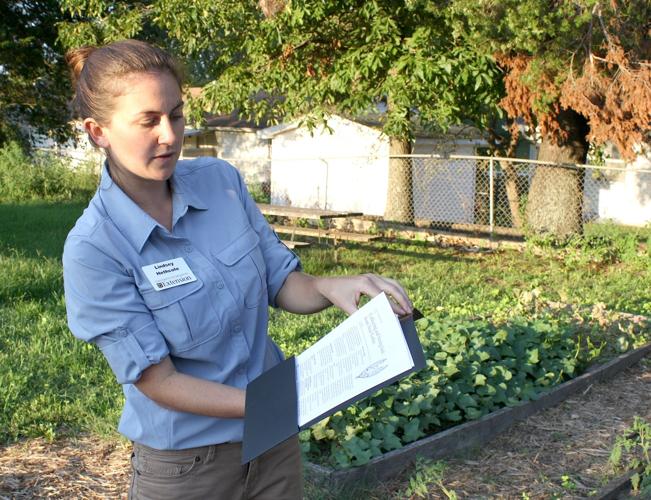In life, it’s easy to take short cuts, but if you take time to do things a different way, what develops may surprise you. The MU Extension held a seed saving workshop by Lindsey Hethcote, an agronomy specialist, at the Salem Community Garden Aug. 22. Besides explaining how to simply extract seeds from left over crops, she outlined the many benefits to doing so, such as promoting agrobiodiversity, saving money, improving pest control in your garden, and preventing disease in plants. Most importantly, she described how seed saving could bring a community together.
Generally, there are wet seeds, and dry seeds. Both require different approaches when extracting them.
Tomatoes are the most common type of wet seeds, and take a few more steps to save. To save the seeds from tomatoes, you need to cut open a tomato, and scrape out the seeds and the slime surrounding them into sealable container filled about half way with water. Let the seeds set in the container to ferment. After a few days, separate water from seeds, and place seeds on a ceramic plate to dry in a window for two weeks; letting the seeds dry completely is key to the process. Once completely dry, place seeds in a small paper bag or envelope; be sure to use paper opposed to a plastic bag because it wicks away any moisture left. Write information, such as date and type of seeds, on paper bag. Place any paper bags in a sealable container, and store in a dry, dark, cold place.
Dry seeds, like green beans and some herbs, can be saved simply by allowing the seeds to dry completely on the plant. Depending on the plant, you can usually just gently rub the seeds off to store as you would a dried wet seed.
By taking these steps in your home garden, you can encourage agrobiodiversity, save money, improve pest control, prevent disease, and build community bonds. As explained by Hethcote, it’s more important than ever to make bonds in our communities with knowledgeable people, rather than searching on the internet, because some knowledge is only stored in the minds of everyday people. Just by attending an hour lesson, individuals in our community shared their unique knowledge of responsible gardening, making an impact to last.


















